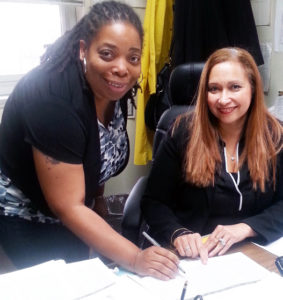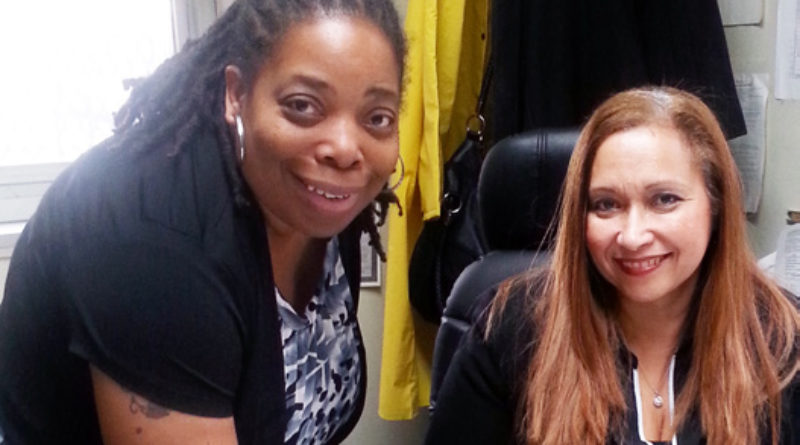An Interview with OPMOM Property Manager Kathie Shoulders

Kathie Shoulders was a property manager for two years at Harlem River Houses before applying to participate in the Optimal Property Management Operating Model (OPMOM) pilot that launched in January. “The minute I heard about OPMOM, I was excited,” she said “because I wanted an opportunity to really take control of day to day operations.”
Now assigned to Lincoln Houses, one of 18 OPMOM developments, Ms. Shoulders has a few months’ experience with the centralized property management model. Here is some of what she had to say.
Are things different for you now with OPMOM?
Yes, very different. For example, I was able to better prepare for our HUD Public Housing Assessment System (PHAS) inspections because I could easily access funds from our budget to buy materials needed for repairs. Before, there was more paperwork and layers of approval. My decision to allocate funds for PHAS brought our development’s score up seven points over last year.
How does OPMOM affect staff?
When supervisory staff see that we can get the materials and staff we need, that encourages everyone to do a good job. People want to do their job well and get frustrated when things hold them back.
Doesn’t OPMOM also affect how you purchase materials and services?
Yes. I recently purchased bathroom tiles and paint directly from a vendor because we could get approvals within 24-48 hours. That allows for faster repairs and less waiting time for residents.
We also paid NYCHA’s Law Department for a consultation to prepare for an administrative hearing for possible termination of tenancy. Previously this kind of service would have been free. For other kinds of legal services that are less specialized for NYCHA, we may decide to seek legal services from a private firm.
How has OPMOM affected resident engagement?
Now that we have more control over our resources, residents’ input is more important than ever. Really, everything we do is geared around customer satisfaction. I and my team attend monthly resident association meetings and I have an open door policy to ensure that we are familiar with the quality of life issues that residents care about.
I even get a monthly report card from the Resident Association that tracks progress made in areas requested by residents, and also areas where I and my staff want to see improvements. The report card includes sections such as lobby entrances, elevators, lighting, outside walkways and other categories, even satisfaction with property management staff.







